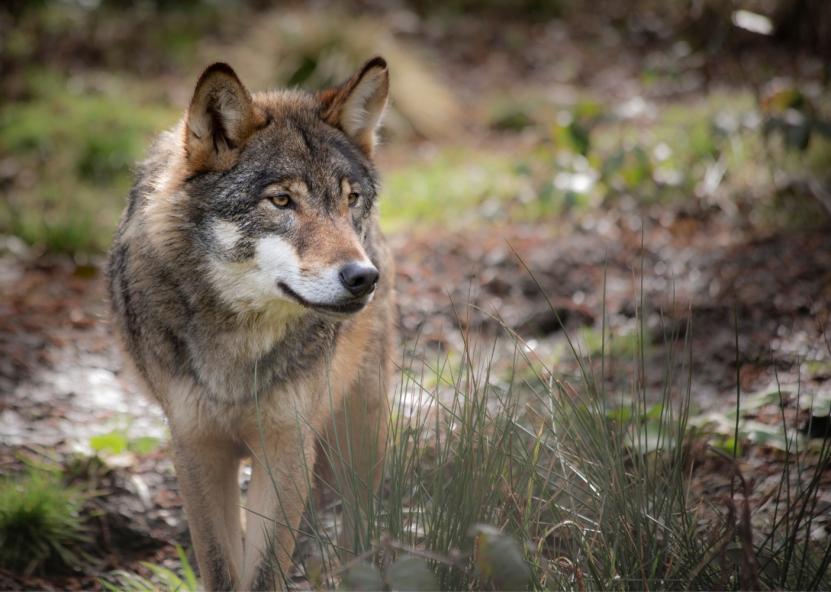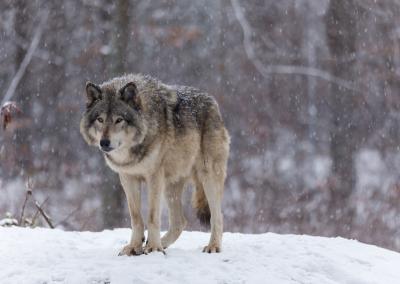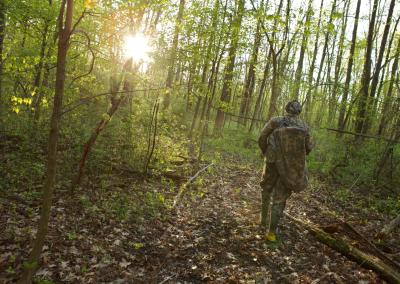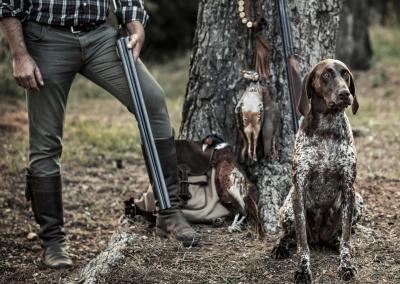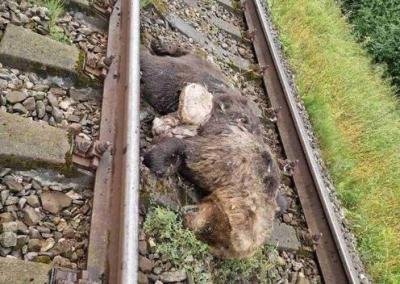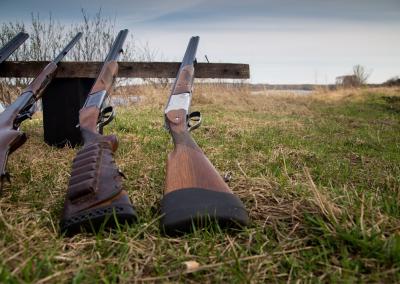The wolf hunting limit has not been met - what can livestock farmers expect?
The Ministry of Environment last autumn authorised the hunting of 341 wolves during the 2024-2025 season. However, the limit remained unfulfilled. Although it was not enough to hunt 326 wolves – livestock farmers are worried and claim that Lithuania has far too many wolves. It seems that we could raise [lambs – author's note], export them, make money, but we can't, because wolf farming thrives in Lithuania," says Gintarė Kisielienė, the head of the Association of Lithuanian Sheep Breeders.
The government has forgotten its own legislationGarina Kisielienė considers the unenforced wolf hunting limit to be unequivocally bad and claims that it is a sign of last year's unhunted increase: "Scientists can calculate in one way, but for us, as livestock breeders, it means that the number of wolves is increasing instead of decreasing."
The head of the Lithuanian Sheep Breeders' Association (LAAA) does not understand why the Lithuanian state has forgotten its own legislation, the wolf protection plan.
Point 36 of the plan states that the limits of 32–62 wolf families must be maintained.
„The number of wolf families is increasing every year and today there are certainly more than 62. So I wonder why the State is not following its own legislation? Do we really need so many wolves?“ – rhetorical questions were raised by the speaker.
As an example, Ms Kisieliene cited Norway, where the parliament has approved that the country has enough wolves for 200. Comparing the size of the countries, the LAAA head said she did not understand why Lithuania allowed a much higher number.
„How many wolves do we have? Probably over 1 000. And yet not many?!!!“ – the woman couldn't help but wonder about the state's attitude.
„After all, Lithuania is a small country, densely populated. Livestock breeding is developed and it is this sector that suffers particularly from wolves," said Ms Kisielienė.
Quality-produced lamb is in very short supply and exports are profitable. Unfortunately, she says, orders are sometimes impossible to fulfil – the lambs are butchered by wolves.
Netheless, the LAAA manager says that a number of sheep farmers are considering withdrawing from the market because of wolf attacks: "What is the state thinking – are we going to eat the wolves...?"
„Nature has made it possible for wolves to survive“
Raimondas Ribačiauskas, President of the Lithuanian Hunters' Union „Gamta“, says that this season has been favourable for wolves in more than one aspect. First of all, there was hardly any snow in the winter – so the actual wolf hunting season was very short.
„ Moreover, the presence of wolves almost eliminated the possibility of hunting wolves with flags, – continued R. Ribačiauskas.
The hunting of wolves was not very successful with the increasingly popular tactic of luring / howling, because, according to the hunter, the full moon was often overcast this year, and it is forbidden to hunt wolves when the moon is illuminated.
„The gods of hunting have turned away from hunters“, – jokingly said the president of the Lithuanian Hunters' Union „Gamta“.
He also added that the enthusiasm of the hunters themselves has faded. While wolves were scarce, hunting them was a dream for many. Now, many people may have realised that dream.
Is increasing the limit – the solution?
„Wolf accounting itself is the most accurate it can be today. We have to trust the scientists who determine the number of wolf families based on genetic studies," Ribačiauskas said, adding that he believes the accuracy of the current count could be as high as 80–85 percent.
Wolves are seen to be pressing closer to bigger cities and people as they start new families and look for their own hunting unit. This, according to the hunter, indicates that there are a lot of wolves in Lithuania and that they lack a more remote, unoccupied hunting unit. But would increasing the hunting limit be the solution?R. Ribačiauskas argues that the problem lies in the fact that wolf families have specialised in eating domestic animals for generations. Females teach their young to eat sheep, goats and other livestock because they are easy prey.
In order to break the vicious behaviour of wolves in Lithuania, a project to remove problem wolves was intensively discussed at the end of last year.
Laimonas Daukša said that if the law had been approved, hunters would have been given the opportunity to try to hunt down a specific problem wolf that had killed an animal. That is, it would have been possible to get a special permit and within days, not weeks, to hunt a returning "offender", even out of season.
„Not just any other wolf will return to the same place– the same wolf will return. Problem wolves show signs of deviation, they may be genetically underdeveloped, weak, sickly, or injured– – said the head of the LWMA.
Unfortunately, the project was never approved because of the misinformation that was spread. It is a great pity that the Ministry of the Environment lacked the determination to adopt this project, which we were looking forward to," regretted Mr Daukša.
„In Lithuania, population management is not determined by the number of wolves, but by the hunting of problem wolves. The more problem wolves are hunted, the fewer animals are slaughtered, the fewer payments are made, and the fewer the losses and moral hazard– – convinced the head of the LWMA.



































































































